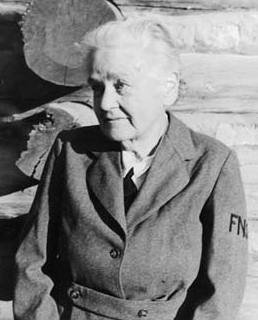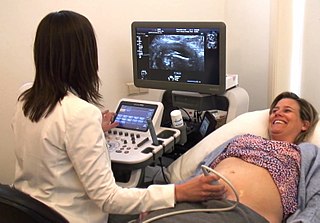
A registered nurse (RN) is a nurse who has graduated or successfully passed a nursing program from a recognized nursing school and met the requirements outlined by a country, state, province or similar government-authorized licensing body to obtain a nursing license. An RN's scope of practice is determined by legislation, and is regulated by a professional body or council.

The Nursing and Midwifery Council (NMC) is the regulator for nursing and midwifery professions in the UK. The NMC maintains a register of all nurses, midwives and specialist community public health nurses and nursing associates eligible to practise within the UK. It sets and reviews standards for their education, training, conduct and performance. The NMC also investigates allegations of impaired fitness to practise.
Nurse education consists of the theoretical and practical training provided to nurses with the purpose to prepare them for their duties as nursing care professionals. This education is provided to student nurses by experienced nurses and other medical professionals who have qualified or experienced for educational tasks, traditionally in a type of professional school known as a nursing school. Most countries offer nurse education courses that can be relevant to general nursing or to specialized areas including mental health nursing, pediatric nursing and post-operatory nursing. Courses leading to autonomous registration as a nurse typically last four years. Nurse education also provides post-qualification courses in specialist subjects within nursing.
Nursing in the United Kingdom has a long history. The current form of nursing is often considered as beginning with Florence Nightingale who pioneered modern nursing. Nightingale initiated formal schools of nursing in the United Kingdom in the late 19th and early 20th centuries. The role and perception of nursing has dramatically changed from that of a handmaiden to the doctor to professionals in their own right. There are over 700,000 nurses in the United Kingdom and they work in a variety of settings, such as hospitals, health centres, nursing homes, hospices, communities, military, prisons, and academia, with most working for the National Health Service (NHS). Nurses work across all demographics and requirements of the public: adults, children, mental health, and learning disability. Nurses work in a range of specialties from the broad areas of medicine, surgery, theatres, and investigative sciences such as imaging. Nurses also work in large areas of sub-specialities such as respiratory, diabetes, cancer, neurology, infectious diseases, liver, research, cardiac, women's health, sexual health, emergency and acute care, gastrointestinal, infection prevention and control, neuroscience, ophthalmic, pain and palliative, and rheumatology. Nurses often work in multi-disciplinary teams but increasingly are found working independently.

Mary Carson Breckinridge was an American nurse midwife and the founder of the Frontier Nursing Service (FNS), which provided comprehensive family medical care to the mountain people of rural Kentucky. FNS served remote and impoverished areas off the road and rail system but accessible by horseback. She modeled her services on European practices and sought to professionalize American nurse-midwives to practice autonomously in homes and decentralized clinics. Although Breckinridge's work demonstrated efficacy by dramatically reducing infant and maternal mortality in Appalachia, at a comparatively low cost, her model of nurse-midwifery never took root in the United States.

Nursing in Australia has evolved in training and regulation since the 19th century.

Indian Nursing Council is a national regulatory body for nurses and nurse education in India. It is an autonomous body under the Government of India, Ministry of Health & Family Welfare, constituted by the Central Government under section 3(1) of the Indian Nursing Council Act, 1947 of Indian parliament. According to the original act the function of the council is to provide "uniformity in nursing education".

The National Health Service Act 1946 came into effect on 5 July 1948 and created the National Health Service in England and Wales thus being the first implementation of the Beveridge model. Though the title 'National Health Service' implies a single health service for the United Kingdom, in reality one NHS was created for England and Wales accountable to the Secretary of State for Health, with a separate NHS created for Scotland accountable to the Secretary of State for Scotland by the passage of the National Health Service (Scotland) Act 1947. Similar health services in Northern Ireland were created by the Northern Ireland Parliament through the Health Services Act 1948.

The Midwives Act 1902 was an Act of Parliament of the Parliament of the United Kingdom, given the royal assent on 31 July 1902, in force from 1 April 1903, and repealed in 1951.

Nursing is a profession within the healthcare sector focused on the care of individuals, families, and communities so they may attain, maintain, or recover optimal health and quality of life. Nurses can be differentiated from other healthcare providers by their approach to patient care, training, and scope of practice. Nurses practice in many specialties with differing levels of prescription authority. Nurses comprise the largest component of most healthcare environments; but there is evidence of international shortages of qualified nurses. Nurses collaborate with other healthcare providers such as physicians, nurse practitioners, physical therapists, and psychologists. There is a distinction between nurses and nurse practitioners; in the U.S., the latter are nurses with a graduate degree in advanced practice nursing, and are permitted to prescribe medications unlike the former. They practice independently in a variety of settings in more than half of the United States. Since the postwar period, nurse education has undergone a process of diversification towards advanced and specialized credentials, and many of the traditional regulations and provider roles are changing.
Dame Mary Elizabeth Uprichard, DBE, FRCM is a British nursing, midwifery and health care activist. She was made Dame Commander of the Order of the British Empire in 1998.
The history of nursing in the United Kingdom relates to the development of the profession since the 1850s. The history of nursing itself dates back to ancient history, when the sick were cared for in temples and places of worship. In the early Christian era, nursing in the United Kingdom was undertaken by certain women in the Christian Church, their services being extended to patients in their homes. These women had no real training by today's standards, but experience taught them valuable skills, especially in the use of herbs and folk drugs, and some gained fame as the physicians of their era. Remnants of the religious nature of nurses remains in Britain today, especially with the retention of the job title "Sister" for a senior female nurse.

A midwife is a health professional who cares for mothers and newborns around childbirth, a specialization known as midwifery.
Midwives in South Africa are nurses who focus on the care of pregnant women and the delivery of babies. Midwives have the ability to work independently in cases of healthy pregnancies and problem-free deliveries; however, they can refer patients to gynaecologists or obstetricians when complications are diagnosed. The majority of pregnant women in South Africa use the public healthcare system, and most of this care is provided by midwives.
Project 2000 was a higher education scheme in the United Kingdom for nursing qualifications, introduced in 1990 by the United Kingdom Central Council for Nursing, Midwifery and Health Visiting (UKCC), later the Nursing and Midwifery Council (NMC). The development was led by Margaret Dorothy Green.

Jane Salvage(born 6 August 1953) is a British nursing policy activist, teacher, and writer. She has been described as "a hugely influential nurse leader who has contributed to advancing nursing in a wide number of roles throughout her career".

The Briggs Report (1972) was the Report of the Committee on Nursing in the United Kingdom, which reviewed the role of nurses and midwives in hospitals and in community care. It made recommendations on education, training, and professional regulation.
Margaret Dorothy Green OBE FRCN (1929–2017) was a senior Royal College of Nursing employee from 1966 to 1990 and was instrumental in setting up the UKCC, the forerunner of the Nursing and Midwifery Council. Through UKCC, Green introduced major changes to nurse education such as Project 2000 and PREP.
The Judge Report (1985) or the Report of a Commission on Nursing Education was the report of a committee established by the Royal College of Nursing to consider a different approach for nursing education in the United Kingdom.










